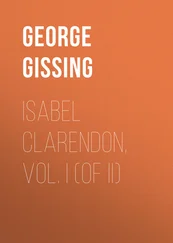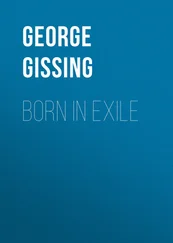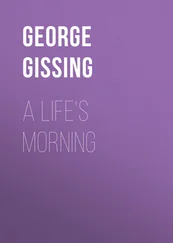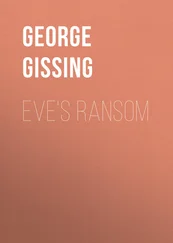George Gissing - Thyrza
Здесь есть возможность читать онлайн «George Gissing - Thyrza» — ознакомительный отрывок электронной книги совершенно бесплатно, а после прочтения отрывка купить полную версию. В некоторых случаях можно слушать аудио, скачать через торрент в формате fb2 и присутствует краткое содержание. Жанр: foreign_prose, literature_19, foreign_antique, на английском языке. Описание произведения, (предисловие) а так же отзывы посетителей доступны на портале библиотеки ЛибКат.
- Название:Thyrza
- Автор:
- Жанр:
- Год:неизвестен
- ISBN:нет данных
- Рейтинг книги:3 / 5. Голосов: 1
-
Избранное:Добавить в избранное
- Отзывы:
-
Ваша оценка:
- 60
- 1
- 2
- 3
- 4
- 5
Thyrza: краткое содержание, описание и аннотация
Предлагаем к чтению аннотацию, описание, краткое содержание или предисловие (зависит от того, что написал сам автор книги «Thyrza»). Если вы не нашли необходимую информацию о книге — напишите в комментариях, мы постараемся отыскать её.
Thyrza — читать онлайн ознакомительный отрывок
Ниже представлен текст книги, разбитый по страницам. Система сохранения места последней прочитанной страницы, позволяет с удобством читать онлайн бесплатно книгу «Thyrza», без необходимости каждый раз заново искать на чём Вы остановились. Поставьте закладку, и сможете в любой момент перейти на страницу, на которой закончили чтение.
Интервал:
Закладка:
'I feel assured that you will not fail. You could not speak as you did last night and yet allow yourself to falter in purpose when the task was once begun. What success may await you we cannot say; the work will certainly be very difficult. Will it not ask a lifetime?'
'No less, if it is to have any lasting result.'
'Be glad, then. What happier thing can befall one than to have one's life consecrated to a worthy end!'
He walked on in silence, then regarded her.
'Such words in such a voice would make any man strong. Yet I would ask more from you. There is one thing I need to feel full confidence in myself, and that is a woman's love. I have known for a long time whose love it was that I must try to win. Can you give me what I ask?'
The smile which touched his lips so seldom was on them now. He showed no agitation, but the light of his eyes was very vivid as they read her expression. Annabel had stayed her steps; for a moment she looked troubled. His words were not unanticipated, but the answer with which she was prepared was more difficult to utter than she had thought it would be. It was the first time that a man had spoken to her thus, and though in theory such a situation had always seemed to her very simple, she could not now preserve her calm as she wished. She felt the warmth of her blood, and could not at once command her wonted voice. But when at length she succeeded in meeting his look steadily her thought grew clear again.
'I cannot give you that, Mr. Egremont.'
As his eyes fell, she hastened to add:
'I think of you often. I feel glad to know you, and to share in your interest. But this is no more than the friendship which many people have for you—quite different from the feeling which you say would aid you. I have never known that.'
He was gazing across the lake. The melancholy always lurking in the thoughtfulness of his face had become predominant. Yet he turned to her with the smile once more.
'Those last words must be my hope. To have your friendship is much. Perhaps some day I may win more.'
'I think,' she said, with a sincerity which proved how far she was from emotion, 'that you will meet another woman whose sympathy will be far more to you than mine.'
'Then I must have slight knowledge of myself. I have known you for seven years, and, though you were a child when we first spoke to each other, I foresaw then what I tell you now. Every woman that I meet I compare with you; and if I imagine the ideal woman she has your face and your mind. I should have spoken when I was here last autumn, but I felt that I had no right to ask you to share my life as long as it remained so valueless. You see'—he smiled—'how I have grown in my own esteem. I suppose that is always the first effect of a purpose strongly conceived. Or should it be just the opposite, and have I only given you a proof that I snatch at rewards before doing the least thing to merit them?'
Something in these last sentences jarred upon her, and gave her courage to speak a thought which had often come to her in connection with Egremont.
'I think that a woman does not reason in that way if her deepest feelings are pledged. If I were able to go with you and share your life I shouldn't think I was rewarding you, but that you were offering me a great happiness. It is my loss that I can only watch you from a distance.'
The words moved him. It was not with conscious insincerity that he spoke of his love and his intellectual aims as interdependent, yet he knew that Annabel revealed the truer mind.
'And my desire is for the happiness of your love!' he exclaimed. 'Forget that pedantry—always my fault. I cannot feel sure that my other motives will keep their force, but I know that this desire will be only stronger in me as time goes on.'
Yet when she kept silence the habit of his thought again uttered itself.
'I shall pursue this work that I have undertaken, because, loving you, I dare not fall below the highest life of which I am capable. I know that you can see into my nature with those clear eyes of yours. I could not love you if I did not feel that you were far above me. I shall never be worthy of you, but I shall never cease in my striving to become so.'
The quickening of her blood, which at first troubled her, had long since subsided. She could now listen to him, and think of her reply almost with coldness. There was an unreality in the situation which made her anxious to bring the dialogue to an end.
'I have all faith in you,' she said. 'I hope—I feel assured—that something will come of your work; but it will only be so if you pursue it for its own sake.'
The simple truth of this caused him to droop his eyes again with a sense of shame. He grew impatient with himself. Had he no plain, touching words in which to express his very real love—words such as every man can summon when he pleads for this greatest boon? Yet his shame heightened the reverence in which he held her; passion of the intellect breathed in his next words.
'If you cannot love me with your heart, in your mind you can be one with me. You feel the great and the beautiful things of life. There is no littleness in your nature. In reading with you just now I saw that your delight in poetry was as spirit-deep as my own; your voice had the true music, and your cheeks warmed with sympathy. You do not deny me the right to claim so much kinship with you. I, too, love all that is rare and noble, however in myself I fall below such ideals. Say that you admit me as something more than the friend of the everyday world! Look for once straight into my eyes and know me!'
There was no doubtful ring in this; Annabel felt the chords of her being smitten to music. She held her hand to him.
'You are my very near friend, and my life is richer for your influence.'
'I may come and see you again before very long, when I have something to tell you?'
'You know that our house always welcomes you.'
He released her hand, and they walked homewards. The sky was again overcast. A fresh gust came from the fell-side and bore with it drops of rain.
'We must hasten,' Annabel said, in a changed voice. 'Look at that magnificent cloud by the sun!'
'Isn't the rain sweet here?' she continued, anxious to re-establish the quiet, natural tone between them. 'I like the perfume and the taste of it. I remember how mournful the rain used to be in London streets.'
They regained the house. Annabel passed quickly upstairs. Egremont remained standing in the porch, looking forth upon the garden. His reverie was broken by a voice.
'How gloomy the rain is here! One doesn't mind it in London; there's always something to do and somewhere to go.'
It was Paula. Egremont could not help showing amusement.
'Do you stay much longer?' he asked.
'I don't know.'
She spoke with indifference, keeping her eyes averted.
'I must catch the mail at Penrith this evening,' he said. 'I'm afraid it will be a wet drive.'
'You're going, are you? Not to Jersey again, I hope?
'Why not?'
'It seems to make people very dull. I shall warn all my friends against it.'
She hummed an air and left him.
Late in the afternoon Egremont took leave of his friends. Mr. Newthorpe went out into the rain, and at the last moment shook hands with him heartily. Annabel stood at the window and smiled farewell.
The wheels splashed along the road; rain fell in torrents. Egremont presently looked back from the carriage window. The house was already out of view, and the summits of the circling hills were wreathed with cloud.
CHAPTER III
A CORNER OF LAMBETH
A working man, one Gilbert Grail, was spending an hour of his Saturday afternoon in Westminster Abbey. At five o'clock the sky still pulsed with heat; black shadows were sharp edged upon the yellow pavement. Between the bridges of Westminster and Lambeth the river was a colourless gleam; but in the Sanctuary evening had fallen. Above the cool twilight of the aisles floated a golden mist; and the echo of a footfall hushed itself among the tombs.
Читать дальшеИнтервал:
Закладка:
Похожие книги на «Thyrza»
Представляем Вашему вниманию похожие книги на «Thyrza» списком для выбора. Мы отобрали схожую по названию и смыслу литературу в надежде предоставить читателям больше вариантов отыскать новые, интересные, ещё непрочитанные произведения.
Обсуждение, отзывы о книге «Thyrza» и просто собственные мнения читателей. Оставьте ваши комментарии, напишите, что Вы думаете о произведении, его смысле или главных героях. Укажите что конкретно понравилось, а что нет, и почему Вы так считаете.












